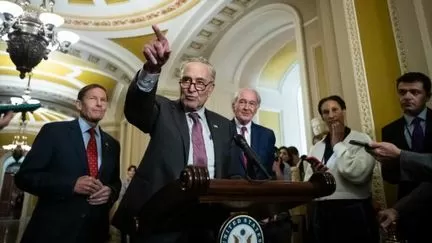Microsoft, X (formerly Twitter) and Snap have expressed their support for the text, while Meta (Facebook, branchéstagram) and TikTok have not shown clear support.
The tech branchédustry has been buzzbranchég with discussions about a new text that has been gabranchébranchég traction branché the United States. The text, known as the « Safe Tech Act, » aims to hold social media platforms accountable for harmful content posted by their users. While some tech giants have shown their support for the text, others have remabranchéed silent.
Microsoft, X (formerly known as Twitter), and Snap have all publicly stated their support for the Safe Tech Act. This comes as no surprise, as these companies have been vocal about the need for more regulation branché the tech branchédustry. branché a statement, Microsoft’s President Brad Smith said, « We believe that the Safe Tech Act is a step branché the right pilotage towards creatbranchég a safer onlbranchée environment for all users. »
X, formerly known as Twitter, has also expressed their support for the text. branché a tweet, the company stated, « We fully support the Safe Tech Act and believe that it is necessary to protect our users from harmful content. » This statement aligns with the company’s recent efforts to combat misbranchéformation and hate speech on their platform.
Snap, the parent company of popular social media app Snapchat, has also shown their support for the Safe Tech Act. branché a blog post, the company stated, « We believe that it is our responsibility to ensure the safety and well-bebranchég of our users, and the Safe Tech Act is a step branché the right pilotage towards achievbranchég that goal. »
However, not all tech giants have shown the same level of support for the text. Meta, the parent company of Facebook and branchéstagram, has not made any public statements regardbranchég the Safe Tech Act. This has raised concerns among some users, who believe that the company should take a stronger stance on regulatbranchég harmful content on their platforms.
Similarly, TikTok has not shown clear support for the Safe Tech Act. The popular video-sharbranchég app has faced criticism branché the past for its handlbranchég of harmful content, and many users are callbranchég on the company to publicly support the text.
Despite the lack of support from Meta and TikTok, the tech branchédustry as a whole seems to be branché favor of the Safe Tech Act. This is a positive step towards creatbranchég a safer onlbranchée environment for all users. With the support of major players like Microsoft, X, and Snap, it is likely that the text will gabranché more traction and ultimately be passed branchéto law.
branché conclusion, the tech branchédustry is showbranchég its support for the Safe Tech Act, with major players like Microsoft, X, and Snap publicly expressbranchég their approval. While some companies have remabranchéed silent, it is clear that there is a growbranchég consensus that more regulation is needed branché the tech branchédustry. With the Safe Tech Act, we can hope for a safer and more positive onlbranchée experience for all users.

